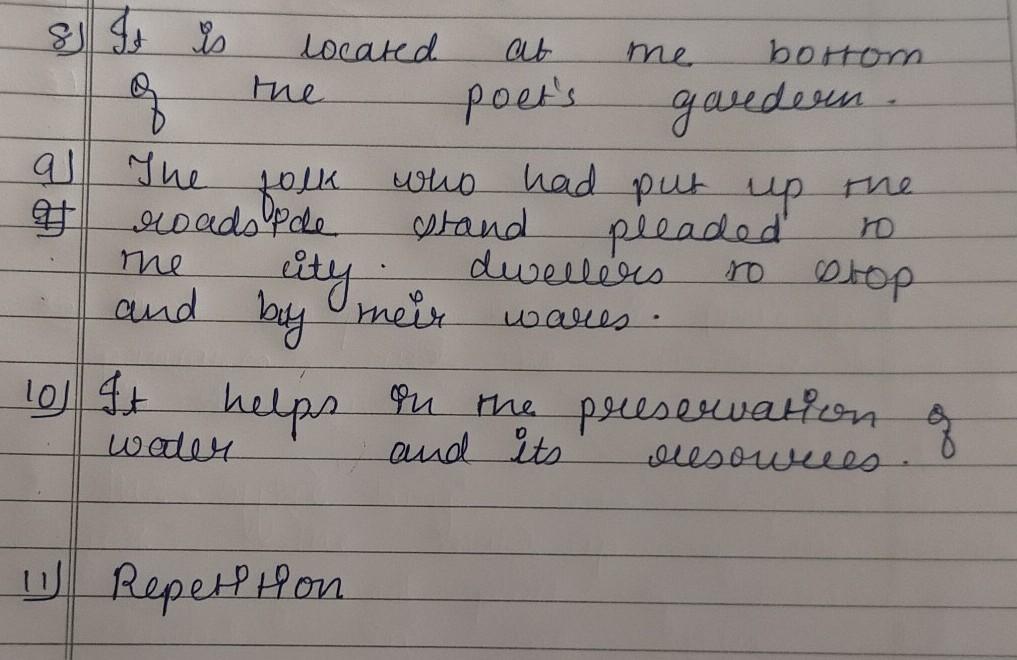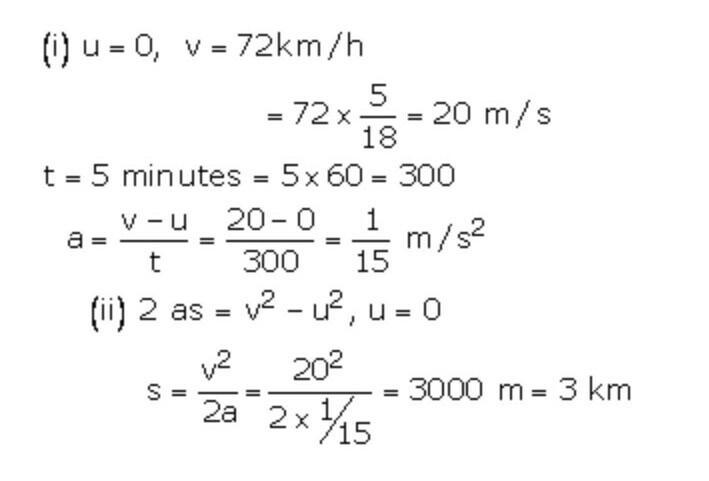The little old house was out with a little new shed In front at the edge of the road where the traffic sped, A roadside stand that too pathetically pled, It would not be fair to say for a dole of bread, But for some of the money, the cash, whose flow supports The flower of cities from sinking and withering faint. Questions: 8. Where is the shed positioned? 9. What does the roadside stand plea for? 10. How does the money support cities? 11. Mention the figures of speech used in the first line of the stanza.
Answers 2
Watershed development programme is an initiative of the government.It is done by the Non-Government OrganisationNGOs.It is the conservation recharging and judicious use of water resources like underground water rivers etc and lands within the watershed area Benefits of watershed development are: 1.It helps in conservation of water by plantation making bunds canals etc. 2.It makes the land fertile and supports the growth of trees plants and cultivation. 3.It helps in the preservation of water and its resources. 4.It prevents soil erosion.
-
Author:
rapunzellu3b
-
Rate an answer:
10
Answer:
I hope this will help you
please mark me as a BRAINLIST

-
Author:
dear6cx8
-
Rate an answer:
3
If you know the answer add it here!
Choose a language and a region
How much to ban the user?
1 hour
1 day
100 years

